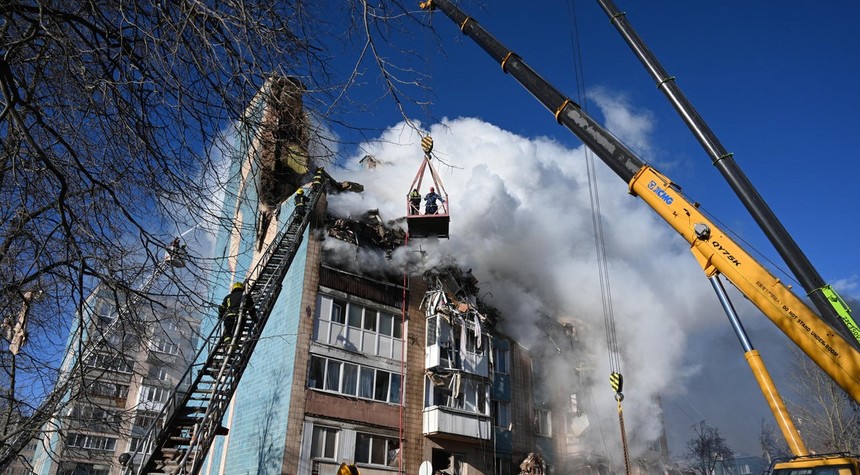Russia conducted one of its most extensive aerial bombardments of Ukraine since the war began in February 2022, killing at least 25 people, including two children, in strikes that reached from the eastern front lines to cities near the Polish border.
Ukrainian President Volodymyr Zelenskyy reported that Russia launched 476 drones and 48 cruise and ballistic missiles at his nation overnight. While Ukraine’s air defenses intercepted the vast majority of these weapons, six or seven missiles and nearly three dozen drones penetrated the country’s protective shield, causing death and destruction across multiple regions.
The attacks demonstrated Russia’s continued willingness to strike civilian infrastructure far from active combat zones. Explosions erupted near Kharkiv in the east, where fighting has raged for months, but also in Lviv, a western city situated close to Ukraine’s border with Poland, a NATO member state. The proximity of these strikes to NATO territory underscores the broader security implications of this conflict for the Atlantic alliance.
The western city of Ternopil suffered the heaviest casualties. The Interior Ministry confirmed that two high-rise apartment buildings and energy facilities sustained direct hits in the city. The targeting of energy infrastructure during winter months represents a calculated strategy to maximize civilian suffering as temperatures drop and heating becomes essential for survival.
Multiple Ukrainian regions reported power outages following the strikes. With winter’s grip tightening across Eastern Europe, the loss of electricity and heating capacity transforms infrastructure damage into a potential humanitarian crisis. The timing of such attacks, when heat becomes a matter of life and death, raises serious questions about the nature of Russia’s military strategy.
Zelenskyy, speaking from Turkey where he met with President Recep Tayyip Erdogan, argued that the scale of Russia’s latest assault demonstrates insufficient international pressure on Russian President Vladimir Putin. The Ukrainian leader indicated he would request Turkey’s assistance in further isolating Russia diplomatically.
“Every brazen attack against ordinary life indicates that the pressure on Russia is insufficient,” Zelenskyy stated, making clear his view that diplomatic and economic measures have not adequately constrained Moscow’s military actions.
The Ukrainian president made cryptic reference to developments involving the United States, saying his administration had observed “some positions and signals from the United States” and suggesting more information would emerge shortly. While Zelenskyy provided no elaboration, new American sanctions targeting Russia’s oil industry are scheduled to take effect Friday. These measures aim to force Putin toward negotiations by constricting Russia’s economic lifeline.
Separately, an Army Secretary Dan Driscoll traveled to Ukraine Wednesday as part of an American delegation exploring possibilities for restarting peace negotiations, according to official confirmation. Whether this diplomatic effort can gain traction while such devastating attacks continue remains an open question.
The facts are these: Russia maintains its capacity to launch large-scale aerial assaults deep into Ukrainian territory. Ukraine’s air defenses, while effective, cannot provide absolute protection. And as winter settles over the region, the conflict shows no signs of abating. That is the situation tonight in Ukraine.
Related: Ukraine Seeks Advanced American Missiles to Counter Russian Offensive Operations

